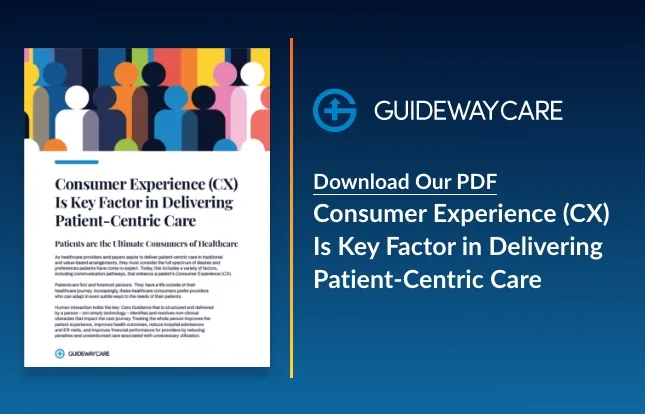Four New Payment Models for Advanced Primary Care

- Renewed focus on addressing health equity
- Emphasizes financial calculations — now possible for more safety-net providers to participate
- Increases the ranks of specialists in value-based care
Advanced Primary Care (APC) is back in the spotlight for 2023, with four new payment models announced at the Center for Medicare and Medicaid Innovation (CMMI) Value-Based Payment Summit. These models further shift the focus of primary care toward quality and health equity. It’s another step toward enabling states to assume and manage the total cost of care for Medicare.
“Kudos to CMMI for paying close attention to the equity design elements of the APC model, and for expressing their intent to scale features that work and learn from challenges,” says Craig Parker, CEO of Guideway Care. “This is a great follow-on to the start of the ACO REACH payment model that advances health equity and focuses on bringing the benefits of accountable care to Medicare beneficiaries in underserved communities.”
Instead of focusing on just on volume and numbers, APC ensures patients are provided with high-quality care, allowing providers to be rewarded for delivering a better patient experience. Parker points to the significance of the new APC payment model as a first for CMMI, including an adjustment to benchmarks based upon how well the provider does in addressing health equity.
“It is so gratifying to witness these changes that align with our care guidance solution that is steeped in advancing health equity by resolving barriers to care that are associated with social determinants of health,” says Dr. Ed Partridge, Guideway’s chief medical officer. “Our specially trained Care Guides demonstrate that our proactive approach to patient activation reduces avoidable deteriorations and associated costs.”
CMMI did not specify how many states would be affected by the new cost-of-care model but indicated input from state and constituencies at the state level will be critical. How the model results will be evaluated is also expected to change this year. CMMI has authority under the Affordable Care Act to change how Medicare pays for services, and a model has to be certified to be expanded in scope.
“At the heart of these changes is not simply the ability to meet certain spending and quality criteria, but to also initiate health system transformation,” adds Parker. “We anticipate that many APC practices as well as hospitals and health systems will be interested in the opportunity to add our care guidance solution to their portfolio of services in their quest to really transform their approach to care and health equity,” adds Parker.
CMS has adopted several reforms aimed at incentivizing participation in value-based care models, especially among safety-net providers. Some of the reforms include upfront investments to help new providers defray initial costs.
Guiding the Future of Equitable Healthcare
Guideway Care recognizes the importance of addressing SDoH. Guideway provides care guidance and health equity programs in a solution as a service model, delivering highly trained “care guides” that operate within a scalable, technology-enabled platform to activate patients and uncover and resolve practical, non-clinical issues and barriers experienced during their care journey.
Contact us for more insight into how Guideway Care, as your partner, could implement an efficient and effective Care Guide solution to proactively resolve SDoH issues, and deliver on the promise of health equity based on the needs of the patient populations in your community.
Contact Us Today To Learn How We Can Help
"*" indicates required fields




